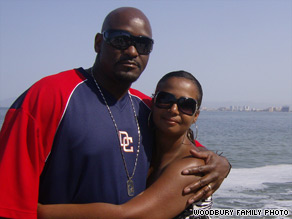Anonymous said,
BWAAHAHAHAHAHA!!! Love the review and the comments. I can't even count on my fingers and toes the number of clueless black women who bought into this nonsense. What kind of MAN refers to a woman's sexuality as her cookie? What kind idiot tells her to wait 90 days as if that's some magic formula that's going to make a man stay with you. All that guarantees is that YOU will be without sex for 90 days. It guarantees NOTHING on the part of the man. Instead of telling women "beware of all the dogs", "change yourself so you might be lucky to tame the dog", why not write a book to tell all the dogs to GROW THE F*CK UP!!! It is only in the black community where the women blame and tame themselves. That's why it will go down the toilet where it's headed now.
First of all, thank you for your sarcastic compliment of my review. I knew you meant it to be funny, but I take it as praise instead.
Clueless black women bought into the nonsense
So we're called clueless because we find value in what Steve wrote. Honestly, Anon, there's not much pop culture advice for black women to reasonably follow. Clearly, from the number of out-of-wedlock births, black women need sound, practical advice on how to conduct themselves in relationships. And I'm not just blaming black women here - the semen that impregnated them didn't just fall from the heavens like manna. So yeah, maybe we are clueless for listening to Steve.
Whats more likely is that we find value in what he's written because it makes sense. There really isn't much to Steve's book that we haven't heard from our grandmothers, mothers and aunts, but that we no longer listen to. We've discarded the old-fashioned advice on how to date as outdated and impractical. But how is our present way of doing things working out? I disagree with you on the premise that he's advocating women to change in order to tame the dogs out there. He's advocating change because the way we've been conducting relationships is not working. Black women know this - and thats why we've 'clulessly' embraced his book. Those of us who've analyzed our success rate and want to improve our chances are looking for ways of doing so, and find that Steven's methods are conducive to our goals. Furthermore, we are not men and don't know how men think. So for a man to step out and say 'hey, ladies, this is how we think' and then put forth advice that gives us a measure of protection in the dating realm, well, I just don't see how its clueless for us to listen. I'm not a man, I admit that I can guess how men think, but the only people who I generally get advice about men from is other women. And yeah, they don't necessarily think like men either.
Woman's sexuality is a cookie
Perhaps Steve referred to the vagina as a cookie, because he doesn't have one and is refraining from calling it something vulgar, like a coochie, poonannie or p*ssy. Or, perhaps, he views the vagina like a dieter would view a sugary treat - he knows he must put in work on the treadmill in order to receive one. He feels that its something to look forward to, not to be consumed freely whenever he gets the urge, that he's not entitled to all the time. Or maybe he's just trying to be cute.
90 Days Is The Magic Formula
This number isn't given to ensure that the guy will stay. Steve never says that in the book and I frankly don't know why critics of this book keep harping on that. I'm not even sure where that assumption comes from. And if a woman goes without sex for 90 days, I guarantee that the world will not end. Don't run outside to check that the sky is falling on that one. I mean, she could even do something constructive with that energy, like go to the gym, set and pursue goals for herself, redecorate her apartment or read a book.
What he was getting at in the first place is that dating is no guarantee of any future action from a man. He gives the 90-day guideline as a chance for a woman to evaluate a man's intent and judge for herself whether he's worthy to receive entrance to her body and emotions. Men have an emotional separation from sex that women don't have - no matter how we rationalize it away. The vast majority of women are just not wired like that. Once a woman becomes intimate with a man, a part of her is emotionally and irrationally invested in how that man treats her. She begins to act with her feelings and cookie and not with her head. So instead of jumping into bed with someone we think is attractive, hey, why not get to know him first and allow the first-impression facade to drop before our panties do?
Yeah, I can see why you'd be opposed to that.
I admit that I don't live in the best neighborhood. And in my 'hood, there are 3 McDonalds restaurants (I shudder to call McDonalds a restaurant) less than a 5-minute drive from my house. But instead of eating there, I'll dress less casually than normal, spend gas and effort driving across town to a much-fancier eating establishment, and pay twice or three times as much for a burger, french fries and soda. In fact, sometimes I'll wait upwards of 20 minutes before I can even get a table. Doesn't this just boggle your mind? I mean, those McDonalds restaurants are right there. I don't have to wait and I have easy access to those burgers....
You see where I'm going with that.
Beware of all the dogs
We've gotten enough advice of how to beware of dogs. But we still don't know how to make a relationship work. And who better to tell us what doesn't work, than a man who hasn't been successful either. Who, in fact, admits to having been a dog. In fact, he describes how to evaluate whether a man is a dog or not and outlines questions to ask to cut through the crap and protect your feelings from being abused.
He writes that giving it up sooner than 3 months doesn't work; that not having criteria for this man to meet before getting to know us doesn't work; and that not having expectations for how we are to be treated doesn't work. I'd rather someone tell me how something works instead of telling me to avoid the broken model. Steve could write a book to tell dogs to grow up - but how many would read it? Would you pay $24.99 for someone to tell you to stop doing something you find value in? Dogs behave the way they do because they find women receptive to their behavior. So if we stopped being receptive, then they wouldn't have anyone to dog. Makes sense to eliminate the source of their mistreatment instead of telling them to stop mistreating women. Hell, they already know they shouldn't do it, but treat women poorly because we allow it.
Only in the black community....
Now I think you're 110% correct on this point. This is the only place where women are blamed for our (the black community 'our', not black women) sorry state of affairs. This is the only community where men are not openly called on the carpet for being lazy, shiftless, and menaces to society. I've complained before about the ways in which thug behavior is applauded in the black community, along with countless other black women. So I agree with you that something's wrong with that picture.
I could dwell on what was written in this book as black women being admonished and blamed. Or, I could see it as a roadmap of how to conduct any future attempts at a relationship and add those tools to my dating repetoire. Frankly, I don't need someone to soothe my ego and tell me that its not my fault. I need a game plan on how to be successful. I need advice on how to find the type of man I'm looking for. I think this is what Steve Harvey wrote, and I'd rather have something I can utilize than empty words that make me feel better.















